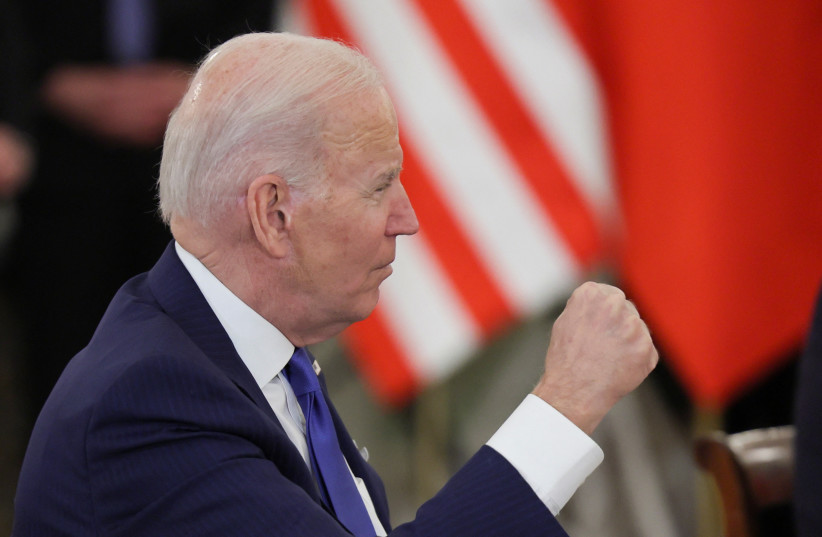There is something at once simple and complex about President Joe Biden’s position that although we are essentially funding Ukraine’s war effort against Russia, it is entirely up to Ukraine what their goals are in this war.
Regarding a negotiated settlement where Ukraine trades land for peace, Biden has said repeatedly: “I’m not going to tell them what they should and shouldn’t do,” and “Nothing about Ukraine without Ukraine.”
Since we are providing Ukraine with the means to maintain its status as an independent sovereign nation, and since we have not supplied any American troops to help fight this war, Biden seems confident in his position that Ukraine must make its own decisions about what it wants.
The simple dimension to this relationship we have with Ukraine – and admittedly other Western countries, including the UK, France and Germany are also supplying military hardware and imposing financial sanctions – is that it is not our position to tell them whether to trade land for peace.
The complex dimension of our relationship with Ukraine tells a different story. Ukraine is not Jamaica, an island in the Pacific or a small country in Central America.

Rather, Ukraine is a large country right in the middle of Europe in between Russia and many free European states. Indeed, the entire NATO alliance, which we basically lead, is enmeshed in the Russia-Ukraine war and, according to Russian President Vladimir Putin, a primary cause of the war because NATO has been moving east since 1991.
The $40 billion of military and economic support we are providing to Ukraine is therefore very much intertwined with US interests.
From this perspective, the question arises as to why Biden is so confident in his judgment that the US has no role in the decisions about what Ukraine does as the war drags on, Ukrainian and Russian deaths mount, and America keeps spending our money to fund this war.
Presumably, Biden does not want the Russians to think that we are actually fighting this war, and thus he says that we are only supplying Ukraine with the means to fight their own war in order to avoid the impression that this is a proxy war of some kind. But our interests are very much at stake in this war. It is hard to separate the “means” of the war and its “ends” as neatly as the president has been doing.
Why is it not open to Mr. Biden to have a say about what Mr. Zelensky should do? Indeed, National Security Advisor Jake Sullivan reported that Biden is talking to Zelensky about what a negotiated settlement might look like, although he is not, Sullivan insists, telling Zelensky what he should do. But why doesn’t Biden have a right to say what the United States recommends?
The state of Donbas
The reality is that the Russians occupy over 70% of Donbas and are within weeks of taking the Luhansk region – and if the fighting persists and they can’t capture all of Donbas, Putin, out of frustration – as Henry Kissinger and others have warned – might transform this conventional war into a nuclear one.
The politics of the US advising or indeed negotiating with Ukraine are admittedly very delicate. But we are in this war up to our waists already, and thus pushing Ukraine toward a peace settlement, which may indeed interest the Russians, may not, from a diplomatic point of view, cause fury on the Russian side.
There are various ways a peace settlement could go, but however it would unfold, the US needs to be more involved in the public dialogue. Biden’s “we have no say” approach – namely that we keep investing American tax dollars in a war which we have no say about – is untenable.
The time is right for President Biden to meet privately with President Zelensky and explain that we can’t keep giving tens of billions of dollars of military support and have no say in a war that affects our own interests in many critical ways. Major NATO allies who are supporting Kyiv should also have a say, and indeed three met recently with Zelensky to share their point of view.
There is a realistic middle position between having “final” say and “no” say – and that is having “a” say.
The writer has taught political philosophy at George Washington University, the University of Cincinnati and Johns Hopkins University. He is the editor of the interdisciplinary volume Leveraging (Springer, 2014).
